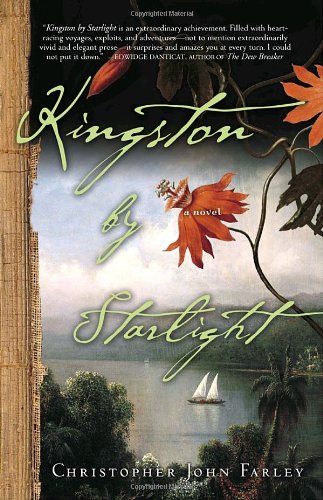Kingston by Starlight
The trial of Anne Bonny, Mary Read, Calico Jack Rackam and their shipmates from the pirate ship William drew international attention when it occurred in 1720. Women in breeches swashbuckling across the Caribbean remain attractive today and certainly deserve another pass, whether for the romance, women’s history, or as we might say in this case, black history.
Unfortunately, like the child of our narrator and Calico Jack, who saves Bonny from the gallows, I found this conception stillborn on a number of levels. The author’s native Jamaica is beautifully drawn, but Bonny’s native Ireland does not live. Bonny’s father dressed her as a boy to pass her off as a son when she was too young to remember? This is only revealed at the end and so doesn’t serve as motivation (besides that, 18th-century boys often weren’t breeched themselves until five or six). Motivation continues to be weak, particularly in our main character where it is most needed. She drifts from the mainland to the islands, to men’s clothes and then to the pirate’s life, leaving the reader completely unengaged in her struggle.
First-person narratives, when well done, are my favorite. Nothing can bring a similar immediacy. This attempt stumbles into all the pitfalls of this choice, however: telling rather than showing. Philosophical musings pull a retreat from blow-by-blow descriptions, distancing and defusing swashbuckling at every opportunity. An example of defused narrative occurs near the end when Bonny and Read are heading to Bonny’s father’s plantation. A slave revolt has gone beyond the brewing stage. Fields are burning, although we don’t smell them. As if this means nothing to them, Bonny and Read placidly cook dinner. Sure, they’re fearless pirates, but if they don’t register threat, neither does the reader.










